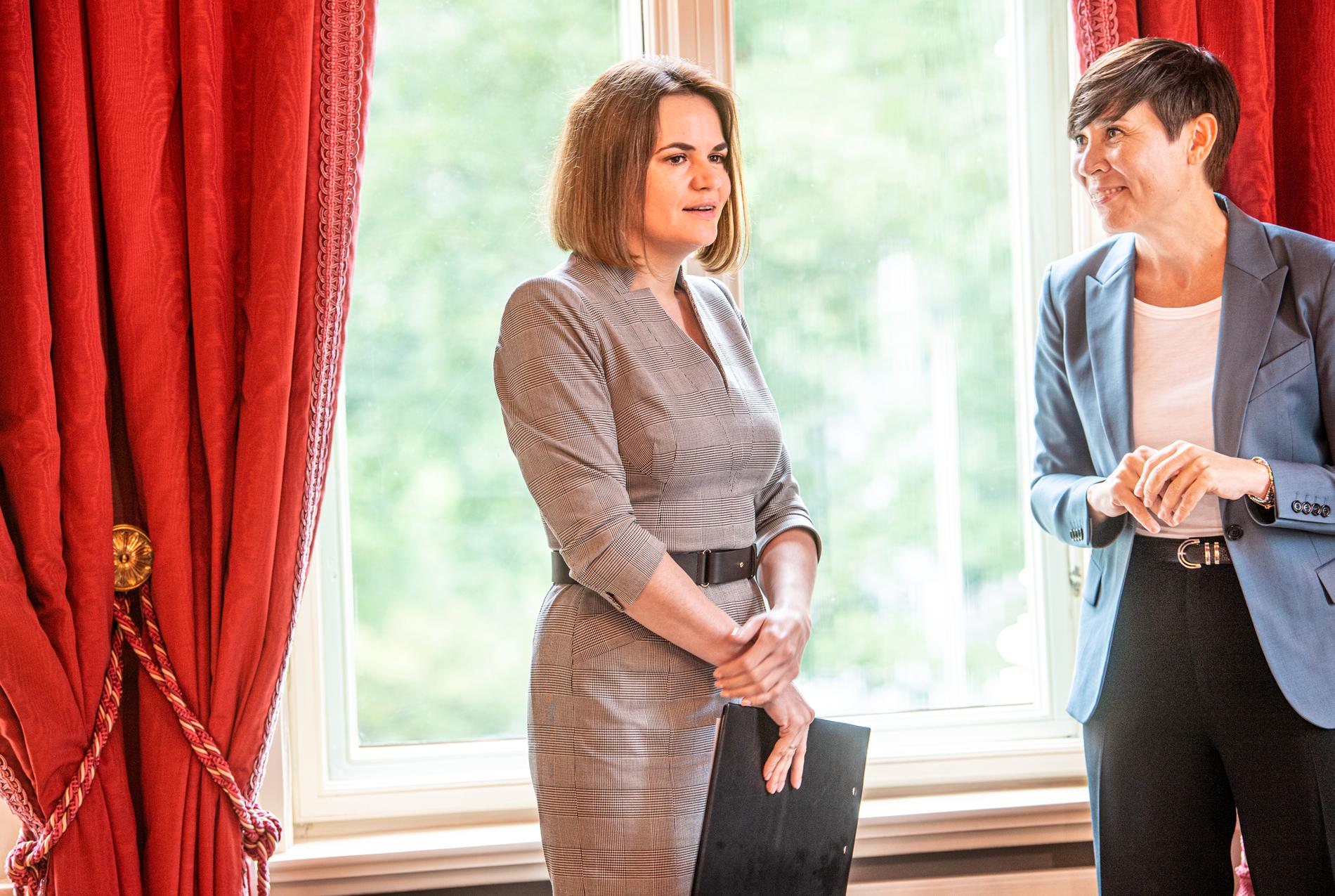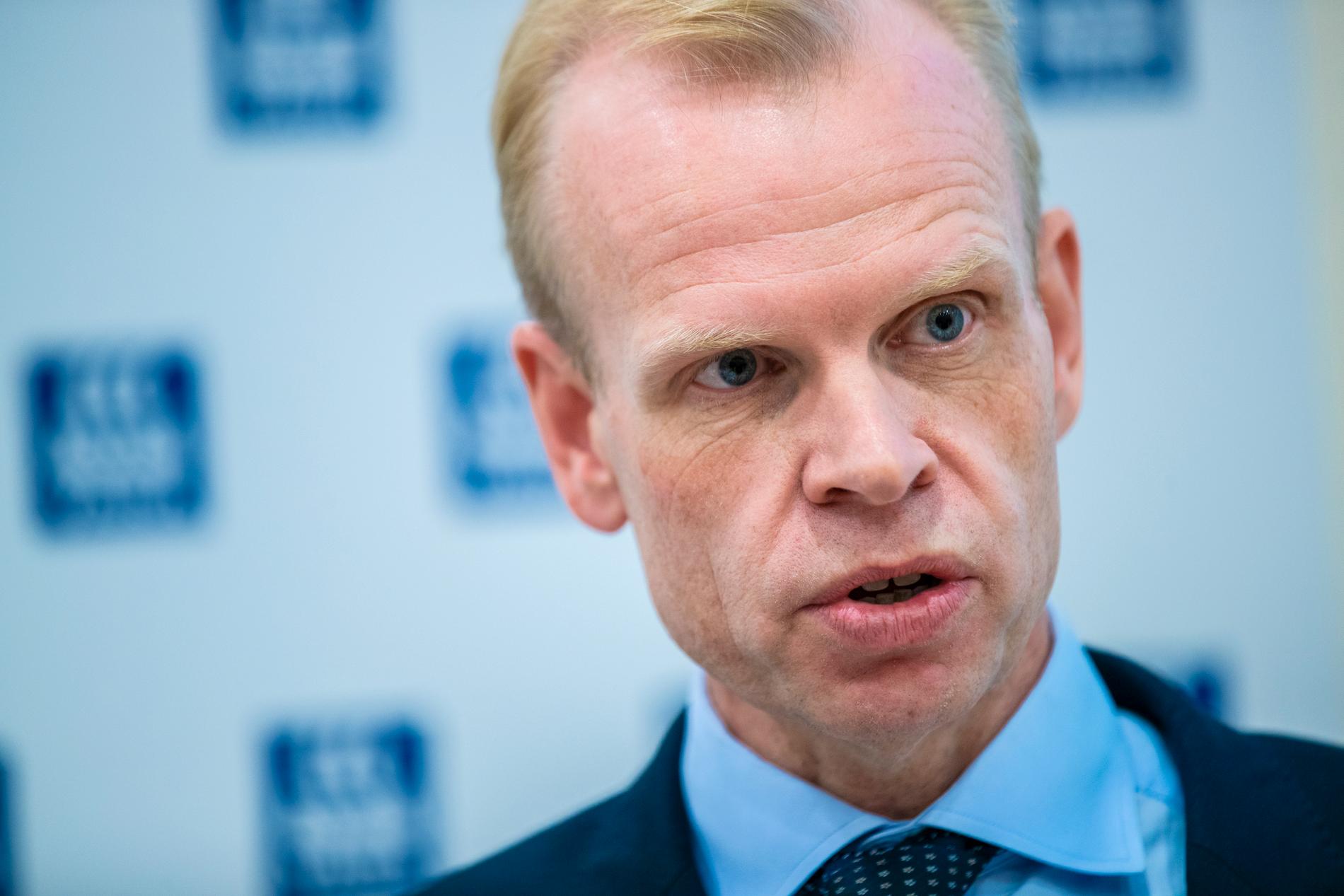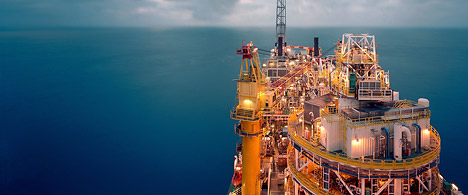The Belarusian opposition asked Yara to break with Belaruskali. Now the sanctions against the country mean that the Norwegian fertilizer giant will stop buying potassium.
Yara announced on Monday that potassium purchases would be halted by April, a move CEO Svein Tore Holsether called “difficult” when speaking to him on Monday on E24.
The Belarusian opposition has repeatedly asked Yara to break off cooperation with the Belarusian potash supplier.
– To what extent did this influence the decision?
– This is an incredibly complex question. There are many dilemmas related to our purchase of potassium in Belarus. We have always used our purchasing power to have a positive impact. It has intensified significantly since August 2020, Yara CEO Svein Tore Holsether tells E24.
– The subject comes up every day, also for me. We had a very close dialogue with many “stakeholders” here, including the independent trade union movement in Belarus, he says.
read also
Yara stops buying potassium from Belarus
– What is Belaruskali’s reaction?
– The dialogue was close throughout, but they also see what is happening around them. And what effect the sanctions have on their entire value chain. The fact that we are communicating this today will probably not surprise them entirely, although they will certainly be disappointed.
Norway and other European countries agreed in December on new sanctions against Belarus, according to the Foreign Ministry. At the same time, the United States and Canada also introduced sanctions against the country.
Points to increased pressure against Yara
Holsether says Yara has also had contact with LO in Norway, the international trade union movement, the Norwegian Helsinki Committee and Belarusian opposition leader Svetlana Tikhanovskaja.
Just last week, Tikhanovskaja came out and asked Yara to break up with Belaruskali.
On Monday, she refers to the Yara news as follows:
Tikhanovskaya is leading the resistance against Belarusian President Alexander Lukashenko from his exile in neighboring Lithuania. In August, she was in Oslo where she met Yara CEO Svein Tore Holsether.
He then said the company would make a decision on Yara’s operations in Belarus by December.

Secretary General Geir Hønneland of the Norwegian Helsinki Committee says in a statement that Yara’s decision is “understandable”. He points to “the worsening of the human rights situation” in Belarus and “increased pressure on the company”.
“The Norwegian Yara was pressured to stop buying potash from the state-owned Belaruskali. At the same time, Yara focused on workers’ rights and worked closely with independent trade unions to improving worker safety and rights,” the committee writes.
read also
Turning up the pressure: Exile leader asks Yara to break with Belarus
– We saw that we had a positive impact. We were able to contribute to improving the working conditions of Belaruskali employees. I don’t think there are many state-owned companies in Belarus that have issued press releases saying they are taking back striking workers, says Holsether.
In December 2020, Yara asked the Belarusian company not to punish the strikers.
– It’s getting harder and harder
According to Holsether, it was the indirect effects of sanctions against Belarus that led to Yara’s decision to stop potassium purchases from Belaruskali.
He says it’s mainly product logistics that have become more problematic recently, but he won’t go into detail about those players.
read also
EU introduces new sanctions against Belarus
– We now see that it is becoming more and more difficult to continue shopping. We depend on an entire value chain from the manufacture of the product to its arrival in our factories. With the sanctions, it becomes more and more difficult, explains the manager of Yara.
– We found it right to communicate that we cannot continue. I apologize for that, because I know we have a positive influence. It won’t be the same if we don’t buy products there, he says.
– I think it’s a difficult decision. Especially with regard to the independent trade union movement in Belarus, with which we have had and have a very close dialogue. They were clear about the importance of continuing our presence, he said.
Can buy from others
According to Holsether, Yara is the largest industrial buyer of potassium in the world.
– This means that we are a large buyer to whom several people are interested in delivering.
He says that 70% of the world’s potassium production is in Canada, Belarus and Russia.
– Then there are also other sources. But we have a large portfolio. We have good prerequisites to be able to handle such a situation.

“Music practitioner. Passionate bacon fanatic. Reader. Food enthusiast. Alcohol nerd. Gamer. Twitter maven.”







